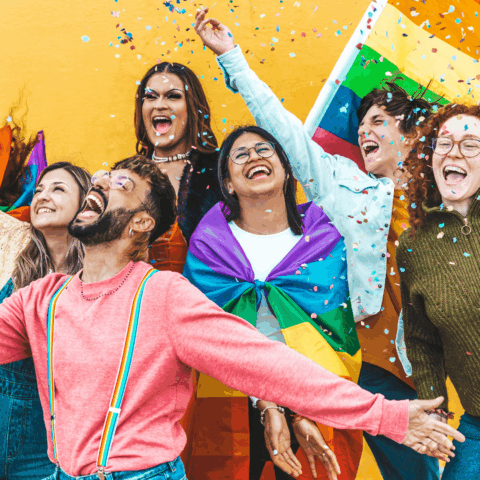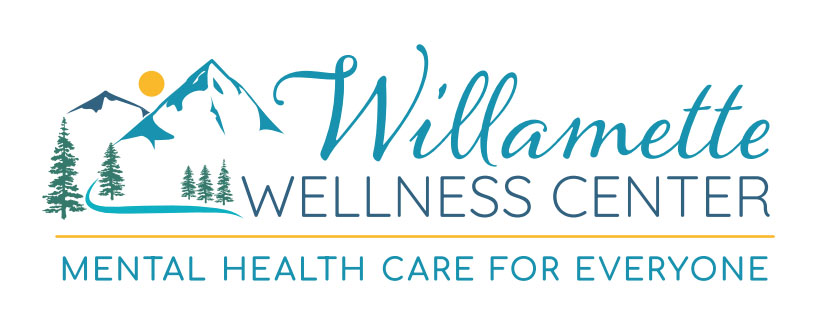Blog Post By Lucas Judson
Coming Out and Coming Home: A Queer-Affirming Journey to Self-Acceptance

Coming out is as much a goodbye as it is a hello. When we come out, we say goodbye to the often narrow script that was written for us by our family, our communities, and the broader cultural context in which we live. We stop performing the version of ourselves that we’re told to be and we start living as our true selves.
It is the moment of coming out that Queer folks begin the journey toward authenticity, self-acceptance, and self-love. While the journey often feels long, a deep well of internal knowing guides us to this moment of truth, leaving us raw yet whole. It’s less of a coming out and more of a coming home.
This first step toward authenticity can feel both liberating and terrifying. It’s the beginning of an entirely new story—one where you finally get to decide who you are.
The Complicated Reality of Coming Out
Wouldn’t it be nice for the story to end there? But it’s not always that simple. In fact, it’s rarely that simple. For many of us, alongside hope and freedom is an incredibly painful process filled with fear, rejection, and even a risk to personal safety. In a larger society that is hell-bent on preserving masculine, feminine, and sexual norms, any straying from those norms poses an immediate safety risk.
It is in these moments that many of us begin our community search – to find others around us with whom we can relate, be ourselves, and finally forge those deep bonds that often felt impossible to create before coming out.
Investing in community is a vital process for Queer folks to feel secure, build cultural context, and process the unique experiences that non-Queer people may not fully understand. Finding safety, understanding, and a sense of belonging in others who “get it” can make all the difference. Community becomes the grounding force that makes healing possible.
“I’m Still the Same Me”: The Personal Side of Coming Out
When I came out, I remember thinking, “I just don’t want it to have to feel like such a big deal. I’m still the same me!”
Coming out has to be a big deal because being Queer isn’t just a personal identity, it is a social identity that influences how you are perceived in every single environment: work, school, at the grocery store—anywhere.
If I had thought this through a little more, my own coming out may have felt more like a housewarming party with all my closest friends and less like being dragged naked across a basketball court by my ankles. It was not glamorous, and it certainly did not feel liberating at the time.
Coming out changes not only how we see ourselves, but also how the world sees us. And that shift can be as exhausting as it is empowering.
Coming Out to Yourself First
But why do Queer folks have to come out at all? As I said, coming out tends to be seen as inherently social; we must come out to someone, right? But there is another coming out: to oneself. This starts long before coming out to others, yet it endures much longer as well.
This internal coming out mimics grief in its cyclical nature. We’re mad that we can’t just be “normal,” we negotiate (maybe it’s a phase!), and then we enter a stage that mimics depression when we realize we will have to face these feelings head-on.
As we claw our way toward acceptance, we still face a steady stream of cultural reminders that we don’t belong.
That inner coming out can last years—and it’s often where the deepest healing begins. Learning to accept yourself in a world that questions your right to exist takes courage and self-compassion.
Healing and Growth Through Queer-Affirming Therapy
Staring these obstacles in the face, we still find a way to step into our beautiful, weird, loving, countercultural selves. But the fear, anxiety, and trauma that we stored in our bodies don’t just go away.
The light we carry in our authenticity does not always reach every dark corner of the past self we embodied for all those years, and the trauma that we endured. It is the ongoing nature of this process of acceptance and working through trauma that makes Queer-affirming therapy so powerful.
And remember those narrow scripts I mentioned in the first paragraph? Yeah—Queer folks get to write their own scripts. This process can feel exciting and also daunting, and it is in the therapeutic space that Queer folks find support for writing these new scripts that encourage them to be the truest version of their unique selves.
Queer-affirming therapy is a place to understand and make peace with your past, but it’s also a place to build a future that works for you. It’s a place to love yourself radically, without an ounce of guilt. It’s a place to imagine Queer joy so hard and so boldly that it becomes your reality.
Therapy can serve as both a mirror and a map—a place to reflect on who you’ve been and to chart a path toward who you’re becoming.
Queer-Affirming Support Near Portland, OR
If you’re looking for additional Queer-affirming support in the Portland area, there are wonderful local resources available.
- Prism Health offers comprehensive, Queer-affirming primary care, STI testing, and substance use services.
- The Q Center provides welcoming spaces for community events, connection, and support among LGBTQ+ individuals.
About the Author
Lucas Judson (he/them) is a Queer-affirming therapist based in Portland, Oregon. He helps LGBTQ+ adults navigate identity, belonging, and healing through trauma-informed, affirming care. To learn more or schedule a session, fill out a new client form.

